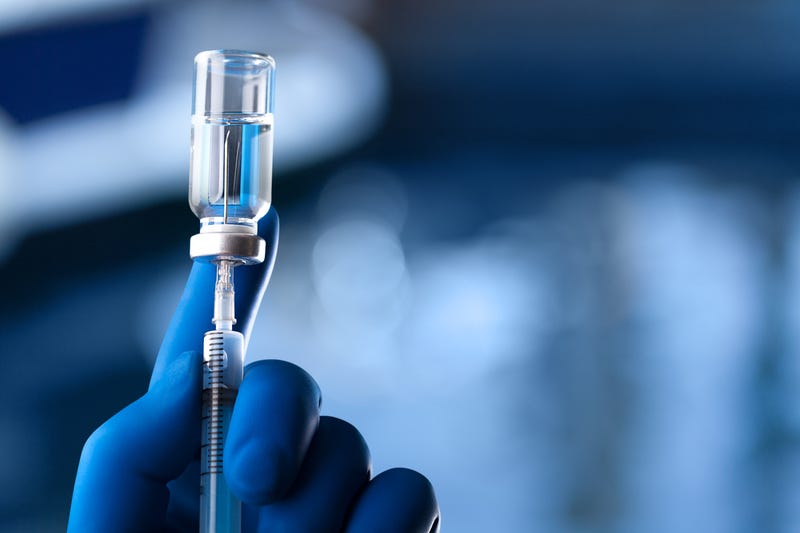
SPRINGFIELD, Ill. (WBBM NEWSRADIO) -- Illinois is widening its “Phase 1B” distribution of COVID-19 vaccine to include anyone, 16 years or older, who have comorbidities and underlying conditions that make them more vulnerable to COVID-19, as defined by the CDC. In addition, Illinois will also prioritize individuals with disabilities.
Governor JB Pritzker made the announcement Wednesday, saying vaccine supply is increasing.
“As quickly as we receive enough vaccine supply, we need to waste no time in protecting a broader section of our most vulnerable population,” Pritzker said. “Those who are under 65 and live with comorbidities, such as cancer survivors or those living with heart disease, have an elevated risk of serious complications or death if they contract COVID-19. Illinois is moving forward in accordance with guidance from the CDC to expand our eligible population as supply allows, getting us closer to the point when the vaccine is widely available to all who want it. In the meantime, I encourage all Illinoisans to wear our masks and follow the mitigations so that more of our neighbors are healthy and alive when it’s their turn in the vaccination line.”
Currently, Phase 1B recipients include anyone 65 or older and frontline, essential workers. Now, beginning Feb. 25, anyone 16 years of age or older with a variety of conditions join the 1B group.
These include people with chronic kidney disease, COPD, diabetes, heart conditions, obesity, sickle cell disease, pulmonary disease, pregnant women, and people who have and/or survived cancer, or have compromised immune systems.
This list is subject to change as guidance evolves and does not reflect an order of priority.
“Many of these people may already be eligible because they’re 65 and over or they’re in a covered profession, but those who are under 65 and live with comorbidities have an elevated risk of serious complications or even death if they contract COVID-19,” he said. “As quickly as we receive vaccine supply, we need to waste no time in protecting them.”
The Pritzker Administration will begin working with local health departments and other providers across the state to include these additional higher-risk individuals into their community vaccination plans in the weeks ahead. Those health departments that have substantially completed their existing Phase 1B population prior to the Feb. 25 statewide expansion date will be able to move forward earlier at the determination of local public health officials and IDPH.
Weekly vaccine shipments from the federal government have increased about 30 percent since President Joe Biden took office, according to Pritzker, while a third vaccine developed by Johnson & Johnson is nearing federal approval.
But supply still lags behind demand. About 2.1 million doses have been shipped to the state over the past two months, with about 1.4 million already administered.
Only 311,589 people have received both required doses, or about 2.5 percent of the Illinois population. The Illinois Department of Public Health is aiming to vaccinate 80 percent of the population to achieve herd immunity.
“I wish I could make enough vaccine magically appear so that we could get all of our Illinoisans vaccinated right now, I really do,” Pritzker said. “That will happen over the next coming months, but today we all have to exercise patience as more vaccine is still being produced. And, in the meantime, no doubt, we will all wear our masks and follow the mitigations so more of our neighbors are healthy and alive when it’s their turn to get vaccinated.”
Meanwhile, Chicago Department of Public Health Commissioner Dr. Allison Arwady said the city would like to start vaccinating people with underlying conditions, but only has enough vaccine for five to 10 percent of those who are already eligible.
“Here in Chicago, if we add additional people right now to 1B, all we do is make it harder for the people who are already eligible to get that vaccine,” Dr. Arwady said.
“And it would make it harder for us to get it to the people who are over 65. It would make it harder for us to get it into the hardest hit communities, because it just dilutes the amount that’s available.”
The other good news is the number of people testing positive for coronavirus in Illinois is just over three percent.
The Illinois Department of Public Health reported Wednesday 2,825 new confirmed and probable cases of COVID-19 in Illinois, including 53 additional deaths.
Currently, IDPH is reporting a total of 1,152,995 cases, including 19,739 deaths.
As of Tuesday night, 2,082 individuals in Illinois were reported to be in the hospital with COVID-19. Of those, 464 patients were in the ICU and 232 patients with COVID-19 were on ventilators.
The preliminary seven-day statewide positivity for cases as a percent of total test from Feb. 3–9, is 3.3 percent.
A total of 1,724,325 doses of vaccine have been delivered to providers in Illinois, including Chicago. In addition, approximately 428,100 doses total have been allocated to the federal government’s Pharmacy Partnership Program for long-term care facilities. This brings the total Illinois doses to 2,152,425.
A total of 1,480,079 vaccines have been administered in Illinois as of Tuesday night, including 223,790 for long-term care facilities. The 7-day rolling average of vaccines administered daily is 55,135 doses. On Tuesday, 62,923 doses were administered. Illinois is on-track to have administered more than 1.5 million doses of COVID-19 vaccine by Thursday, Feb. 11.




